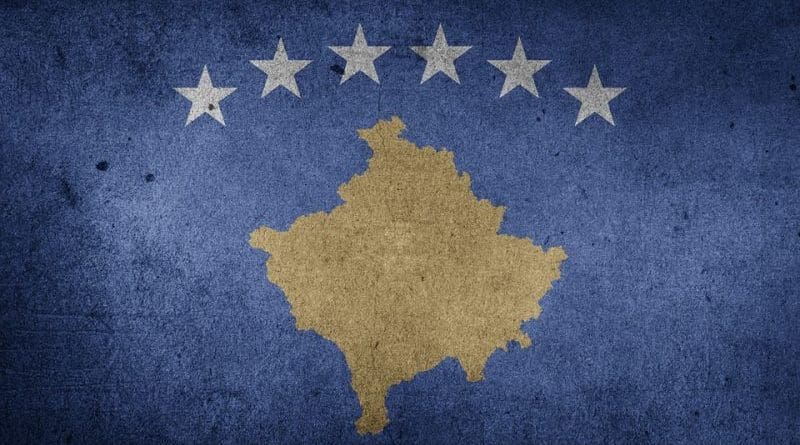Kosovo: Lancing The Boil? – OpEd
NATO would be well within its UN mandate to allow some Serbian forces to return to Kosovo. Perhaps this is the way to lance the Kosovo boil. If Kurti won’t accept an ASM within Kosovo, then allow Serbian police to return to Serb areas until there is the political solution required under 1244. Such action would not amount to a partition unless Kurti and the Kosovo Albanians want it that way.
By Gerard Gallucci
North Kosovo is once again – and as always – the center of conflict between Serbs and Serbia and the Kosovo government and its nationalist Albanian leadership. The Western countries that sanctioned Kosovo’s unilateral declaration of independence in 2008 – led by the U.S. and including France, the UK, Germany and Italy – have failed to achieve a peaceful resolution of that conflict. Though 101 of the world’s 193 nations have recognized Kosovo, those that did not include two of the UN Security Council members who block the abolition of UNSCR 1244. This resolution authorized the international intervention in Kosovo in 1999 and is the legal basis for NATO presence there. Although the ICJ decided in 2010 that international law was not competent to judge matters of state independence or recognitions, the international intervention was under Chapter 7 of the UN Charter, which is international law (as much as we have, anyway). Kosovo thus exists in a kind of entangled quantum state. It’s both independent yet still covered by a UNSCR resolution that leaves its status undefined.
The U.S. and EU (Quint) effort to force a resolution of the Kosovo conflict that is favorable to Kosovo Albanians has failed in a spectacular fashion. The U.S. still has troops in Kosovo, including those patrolling in the north. EU elements there have been attacked. Most significantly, a radical Greater Albania nationalist sits in Pristina as prime minister still dreaming of a Kosovo without Serbs. Albin Kurti did not need U.S. support to replace the failed leaders that the U.S. did favor. He doesn’t need to listen to Washington or its ambassador now. Belated U.S. efforts to support a version of the Ahtisaari Plan in the form of an Association of Serbian Municipalities (ASM) in Kosovo have failed because Kurti and his constituency do not want Serbs in Kosovo, especially not in the north. Thus his continued efforts to force Kosovo Albanian police and border controls there. Unsurprisingly, the northern Kosovo Serbs have resisted in the time-honored ways, blocking roads and acts of minor violence.
Serbian President Vucic has reportedly raised the idea of returning Serbian forces to the north to protect the Serbian community there. Perhaps with NATO approval. Indeed, UNSCR 1244 foresees the return of some Serbian military and police to Kosovo. It determines that:
(4) “that after the withdrawal an agreed number of Yugoslav and Serb military and police personnel will be permitted to return to Kosovo to perform the functions in accordance with annex 2”
Annex two specifies that “an agreed number of Yugoslav and Serbian personnel will be permitted to return to perform the following functions:
– Liaison with the international civil mission and the international security presence;
– Marking/clearing minefields;
– Maintaining a presence at Serb patrimonial sites;
– Maintaining a presence at key border crossings”
Under UNSCR 1244, NATO is operating outside its legal mandate whenever it seeks to support or sustain Pristina’s effort to seize control of the north (or anything, for that matter). NATO would be well within its UN mandate, however, to allow some Serbian forces to return to Kosovo. Perhaps this is the way to lance the Kosovo boil. If Kurti won’t accept an ASM within Kosovo, then allow Serbian police to return to Serb areas until there is the political solution required under 1244. Such action would not amount to a partition unless Kurti and the Kosovo Albanians want it that way. (Nothing of that sort would require Serbia to give up Presevo. That region of Serbia is not in play nor covered by 1244.)
Gerard M. Gallucci is a retired US diplomat and UN peacekeeper. He worked as part of US efforts to resolve the conflicts in Angola, South Africa and Sudan and as Director for Inter-American Affairs at the National Security Council. He served as UN Regional Representative in Mitrovica, Kosovo from July 2005 until October 2008 and as Chief of Staff for the UN mission in East Timor from November 2008 until June 2010. He was Diplomat-in-Residence at Drake University for the 2013-14 school year and now works as an independent consultant. The views expressed in this article do not necessarily reflect those of TransConflict.

